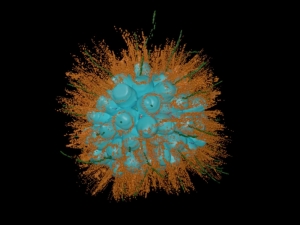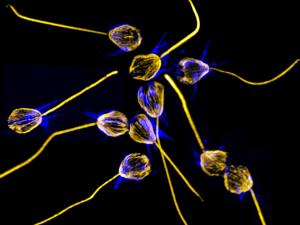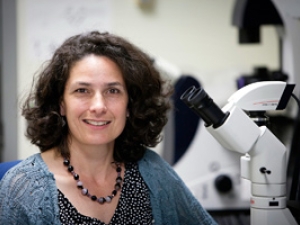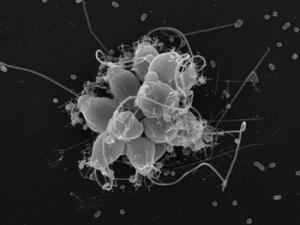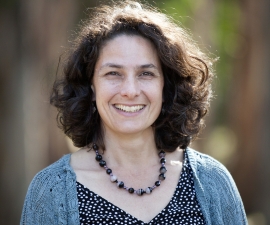

Research Bio
Nicole King is an Investigator, Howard Hughes Medical Institute and a professor of genetics, genomics, and development.
Research
The origin of animals represents one of the pivotal transitions in life’s history, and one of its greatest unsolved mysteries. While the fossil record remains silent regarding the rise of multicellularity, the genetic and developmental foundations of animal origins may be deduced from shared elements among extant animals and their protozoan relatives, the choanoflagellates. To better understand the origin and evolution of animals, the King Lab goals are to:
- determine the minimal genomic complexity of the unicellular progenitors of animals
- elucidate the ancestral functions of genes required for animal development
- characterize choanoflagellate cell and developmental biology
Research Expertise and Interest
choanoflagellates, multicellularity, evolution of animals, host-microbe interactions, bacterial cues
In the News
Did the First Animal Look Like a Sponge or a Comb Jelly?
Creature the Size of a Dust Grain Found Hiding in California’s Mono Lake
Six UC Berkeley Scientists Elected Lifetime Fellows of AAAS
Six Berkeley Faculty Members Elected to National Academy of Sciences
Bacteria act as aphrodisiac for the closest relatives of animals
Howard Hughes Medical Institute names three new campus investigators
Nicole King, Russell Vance and Michael Rape took different routes to UC Berkeley’s Department of Molecular and Cell Biology, but they’ve ended up with one of the mostly highly sought positions at any American university: a fully subsidized appointment, with added research funds, as a Howard Hughes Medical Institute (HHMI) investigator.
Did bacteria spark evolution of multicellular life?
A new UC Berkeley study now suggests that bacteria may have helped kick off one of the key events in evolution: the leap from one-celled organisms to many-celled organisms, a development that eventually led to all animals, including humans.


